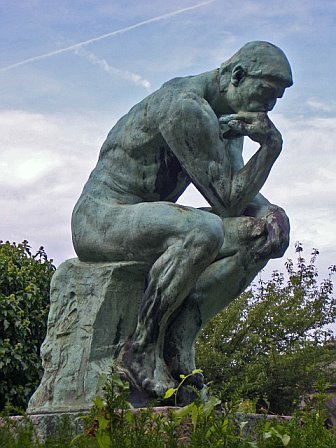
In a complex world, we often rely on the knowledge of others—auto mechanics, computer technicians, brain surgeons, etc.
Does this mean it’s no longer possible to define self-confidence as trust in your own judgment?
No.
To rely on the expertise of an auto mechanic, a brain surgeon or any other person with specialized knowledge is not emotional dependence.
Emotional dependence refers to an unwillingness to use one’s own judgment, the knowledge already existing in one’s mind, in favor of the judgment of others.
Even when selecting a doctor, an auto mechanic, or any other specialist, you’re looking for certain qualities and attributes in that expert. You utilize your own judgment in doing so, if you’re self-confident.
We have to distinguish between knowledge and judgment. It isn’t necessary to know everything in order to be self-confident. It is necessary to trust your faculty of reasoning—your objective, critical judgment.
What I’m talking about here is the capacity to think for yourself.
There are a lot of things in life requiring judgment. They involve choice of friends, choice of spouse, whether or when to buy a house, what kind of career or job to select, and all kinds of other things. You don’t hire an expert to tell you what’s right for you to do in these instances. If you’re willing to think for yourself, you weigh the various factors involved in making a decision. You might accept input from others, and you weigh that input against the factors you’ve already considered.
In the end, a self-confident person decides for him- or herself, objectively and rationally, what makes the most sense. There’s no concern about what others think. There’s only concern about what makes sense, what’s consistent with the facts, and (in matters of preference or option), what’s most personally desirable.
The difference between a person of high self-confidence and low self-confidence is that the confident one goes by reasoning, while the less confident one goes by magical thinking or—more often the case—group think. ‘Everyone else seems to think this is good; so I will too.’ This stems largely from the way we are educated as children, as I stated in a previous article. For too many, group consensus is the intellectual standard, so people-pleasing and not making waves becomes the psychological standard.
This is why so many are unwilling or unable to exercise independent and objective judgment. It’s as if their underlying and all-pervasive feeling is, ‘Who am I to judge?’ Indeed, the moral and intellectual ethos of our time is that it’s always wrong and irrational to judge. But judgment, while not always rational or fair, by definition refers to thought. When we condemn judgment across the board, we’re condemning thought.
The statement, “It’s a specialized world, and we can’t make our own decisions” is often a rationalization for not using one’s own mind and judgment in managing daily life, to say nothing of more complex dilemmas and issues.
Even when choosing experts upon whom to rely, there’s a need to exercise independent judgment. Is this doctor a quack, or someone who can help me? Is this auto mechanic someone who gets results and stands by his repairs, or is he someone who cheats and takes advantage of you? What are others saying about these experts, and what do I think about the reliability and the standards of those expressing the opinions? Try as you might, you will never escape thought.
Too many people go through life feeling like helpless victims. They’re perpetually frightened and constantly angry. What they don’t realize, and usually have not been taught, is that rational, independent thought is their great and sadly undiscovered potential.
Be sure to “friend” Dr. Hurd on Facebook. Search under “Michael Hurd” (Rehoboth Beach DE). Get up-to-the-minute postings, recommended articles and links, and engage in back-and-forth discussion with Dr. Hurd on topics of interest.
